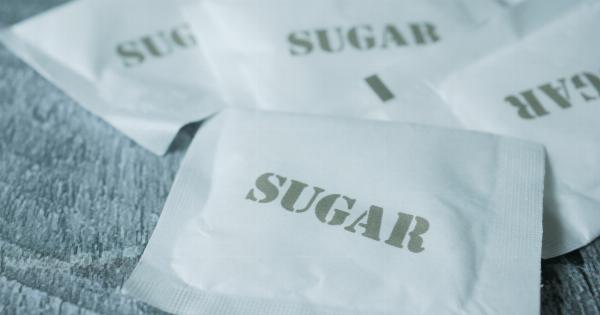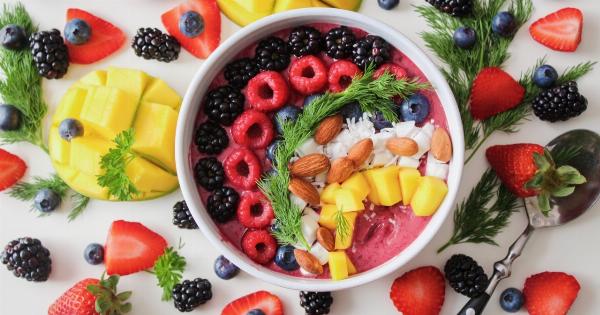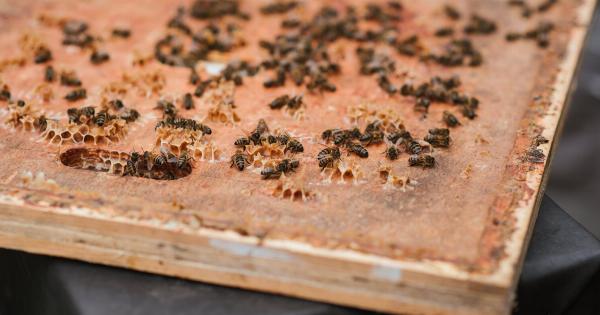We all love sweet treats but they are often associated with harm to our teeth. From a young age, we are taught that consuming too much sugar can lead to tooth decay and cavities.
However, this perception is changing rapidly as more people are opting for alternative sweeteners that do not cause harm to our teeth. In this article, we will explore the various sweeteners that are available and how they can be used to create delicious treats that are friendly to our teeth.
1. Xylitol
Xylitol is a popular sugar substitute that is extracted from various sources such as corn cobs, birch tree, and other plants. Xylitol looks and tastes like sugar but has fewer calories and minimal effect on blood sugar levels.
Xylitol has been hailed for its ability to improve dental health and prevent tooth decay. Unlike regular sugar, xylitol does not promote the growth of bacteria in the mouth that is responsible for cavities. Furthermore, xylitol stimulates the production of saliva, which helps neutralize acids and protect enamel.
Xylitol is commonly found in chewing gum, chocolate, candies, and other confectioneries.
2. Erythritol
Erythritol is another sugar substitute that is quickly gaining popularity due to its low calorie and low-carb nature. Erythritol tastes much like sugar and has a similar granular texture.
The sweetness of erythritol is about 70% that of sugar, which is why it is often blended with other sweeteners to achieve the desired level of sweetness. Erythritol is naturally occurring in fruits such as watermelons, pears, and grapes. It does not affect blood sugar or insulin levels and has virtually zero calories.
Erythritol is commonly used in sugar-free products such as chewing gums, ice creams, baked goods, and drinks.
3. Stevia
Stevia is a natural sweetener that is extracted from the leaves of the Stevia rebaudiana plant. Stevia is a zero-calorie sweetener that is about 200 times sweeter than sugar.
Stevia has been used for centuries in South America and Asia, and it has been shown to have several health benefits. Stevia does not raise blood sugar levels and has no effect on insulin. It also has no impact on dental health and has been shown to have anti-inflammatory and antioxidant properties. Stevia is commonly used in beverages, yogurt, and other desserts.
4. Monk Fruit Extract
Monk fruit extract is a natural sweetener that is extracted from the monk fruit plant. Monk fruit extract is a zero-calorie sweetener that is about 200 times sweeter than sugar.
Monk fruit extract does not raise blood sugar levels and has no effect on insulin. It also has no impact on dental health and has been shown to have anti-inflammatory and antioxidant properties. Monk fruit extract is commonly used in beverages, baked goods, and desserts.
5. Allulose
Allulose is a low-calorie sweetener that is naturally occurring in small quantities in foods such as wheat, figs, and raisins. Allulose is about 70% as sweet as sugar but has only 10% of the calories.
Allulose does not raise blood sugar levels and has been shown to have no impact on insulin. Allulose does not promote tooth decay and has been shown to have prebiotic properties that help promote the growth of healthy gut bacteria. Allulose is commonly used in baked goods, dairy products, and beverages.
6. Maple Syrup
Maple syrup is a natural sweetener derived from the sap of maple trees. Maple syrup has a distinctive flavor and is often used as a condiment on pancakes and waffles. Maple syrup is a natural source of antioxidants and has several health benefits.
Unlike refined sugars, maple syrup has been shown to have a lower glycemic index than sugar, which means it has a smaller impact on blood glucose levels. Maple syrup is also rich in zinc, which is a mineral that is essential for dental health. Maple syrup is commonly used in baking, glazes, and marinades.
7. Honey
Honey is a natural sweetener that is produced by bees from flower nectar. Honey has been used for thousands of years for its medicinal properties and sweet taste. Honey is a source of antioxidants and has several health benefits.
However, honey is high in calories and has a high glycemic index, which means it can lead to weight gain and fluctuations in blood sugar levels. Honey has been shown to have antibacterial properties that can help fight against tooth decay. Honey is commonly used in baking, marinades, and as a sweetener in beverages.
8. Agave Nectar
Agave nectar is a natural sweetener that is extracted from the sap of agave plants. Agave nectar has a mild flavor and is often used as a sweetener in beverages and baked goods.
Agave nectar has a lower glycemic index than sugar, which means it has a smaller impact on blood glucose levels. However, agave nectar is high in fructose, which can be harmful when consumed in excess. Agave nectar does not promote tooth decay and has been shown to have anti-inflammatory properties. Agave nectar is commonly used in baking, sauces, and beverages.
9. Coconut Sugar
Coconut sugar is a natural sweetener that is made from the sap of coconut palm trees. Coconut sugar has a subtle caramel taste and is often used as a replacement for brown sugar.
Coconut sugar has a lower glycemic index than sugar, which means it has a smaller impact on blood glucose levels. Coconut sugar is also a source of inulin, which is a prebiotic that helps promote the growth of healthy gut bacteria. Coconut sugar does not promote tooth decay and has been shown to have anti-inflammatory properties.
Coconut sugar is commonly used in baking, beverages, and as a condiment.
10. Applesauce
Applesauce is a natural sweetener that is made from cooked apples. Applesauce has a sweet taste and is a source of fiber and vitamins. Applesauce is commonly used as a replacement for sugar in baking recipes.
However, applesauce is not as sweet as sugar and may require additional sweeteners to achieve the desired level of sweetness. Applesauce does not promote tooth decay and has been shown to have several health benefits.
Conclusion
Alternative sweeteners have revolutionized the food industry and provided people with healthier options to satisfy their sweet tooth.
While traditional sugar is known to cause harm to our teeth, we now have many alternative sweeteners that are safe for dental health. These sweeteners have been shown to have several health benefits and can be used to create delicious treats that are friendly to our teeth.
There are choices available for everyone, from natural sweeteners to synthetic ones, and the key is to choose wisely and as per your dietary needs and preferences.































